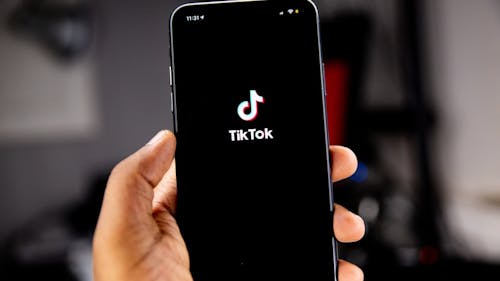Rom-coms aren't dead: TikTok revitalizes genre for Generation Z

The romantic comedy, dubbed the rom-com, isn't a new concept by any means. But it has recently been reinvented by Generation Z in the only way they know how — through TikTok.
Each generation before the current has had their own version of rom-coms, which I define as any story in which love is found only after the protagonist has learned something about themselves, through both humor and sarcasm.
They're loved by all fans for the relatability of the characters, universal storylines and hysterical scenes. Each one became more popular than the next, solidifying the genre as a force to be reckoned with among audiences.
The original rom-coms, or at least some of the first, were penned by none other than Sir William Shakespeare. “A Midsummer Night’s Dream” and “The Taming of the Shrew,” originated some of the tropes seen in rom-coms today with their comical family entanglements, dramatic irony and of course the couple finally uniting, against all odds, at the very end of the story.
Next came the time of the first rom-com films. Though they were originally black and white and soundless, the rom-com made its way into the medium of film successfully.
The 1924 silent movie, “Girl Shy” reinvented the genre again by introducing the meet-cute. This trope — which has become a standard in many rom-coms since — saw the two main characters literally bumping into each other on a train, and the plot then ensues after this first meeting.
Rom-coms after World War II welcomed the introduction of sex to the genre. The female main characters were given sexual desires and careers woven into their plotlines, which resonated deeply among viewers during the radical 1960s.
Finally, to wrap up this walk down memory lane, the 1990s and 2000s invented the beloved blockbuster rom-coms that have defined the movie industry for the past 30 years.
From “When Harry Met Sally” to “Notting Hill” and to the more recent “Crazy Rich Asians” and “To All The Boys I’ve Loved Before,” these films featured star-studded casts, laugh out loud humor, meet-cutes, enviable fashion and leave viewers with the belief that maybe love does conquer all.
Additionally, diversity in the genre has increased in recent years, although it's still not enough. Many rom-coms have featured LGBTQ+ relationships and protagonists of color, meeting calls for more diverse representation in storytelling.
But when it comes to the modern generation, there has been a steady decline in the popularity of the genre. The pragmatic Generation Z isn’t buying into most of the traditional elements of a rom-com.
Instead of viewing meet-cutes as aspirational, they see them as unrealistic. Instead of thinking the dialogue is funny, they label it cheesy. Instead of believing the message that love is enough as dreamy and true, the jaded generation believes this to be absurd and false.
So, it's no surprise that these productions have taken a hit as Generation Zers come of age. The search for the format of rom-com that will define the youngest generation has commenced — in the past year on TikTok, in a subcategory of TikToks dedicated to novels dubbed as BookTok, romantic comedies have exploded across the platform and delivered romantic hope to a weary generation.
BookTok showcases content creation from both big-name social media influencers and non-influential literature enthusiasts alike. It just so happens that all of these creators highlight the same types of novels — rom-coms — and have popularized them so much that many titles have found themselves on a waitlist at Barnes & Noble.
Many of these titles are inclusive, more inclusive than any rom-com of years past, appeasing Generation Z’s focus on social justice and diversity. “Red, White and Royal Blue,” for example, became so loved from BookTok that the author, Casey McQuiston, will be publishing bonus content two years after its release.
The story follows the biracial son of the first female president of the U.S. as he falls in love with a British prince. The story uses the same witty banter and enemies-to-lovers trope that have been used in rom-coms of the past but has been reimagined with a diverse cast of characters, emphasis on technology and modern politics to catch the attention of Generation Zers.
Other titles spread via BookTok like “The Love Hypothesis” and “It Ends With Us,” include storylines of domestic abuse. While formerly either brushed under the rug or painted as the victim's fault, these stories sensitively handle domestic violence as part of someone's life in a meaningful way, while also including the levity of rom-com devices in the lives of abuse survivors.
Generation Z asks more of its content than generations prior. They're uninterested in fluff or stories that refuse to address societal problems in favor of lightheartedness.
The majority of Generation Z is also on TikTok and compulsively spend hours on the application daily. It's no surprise that BookTok has become a key factor in the book-selling industry and has contributed to the reinvention of the rom-com industry. Generation Z still favors the genre but with a twist unique to their ideals.



